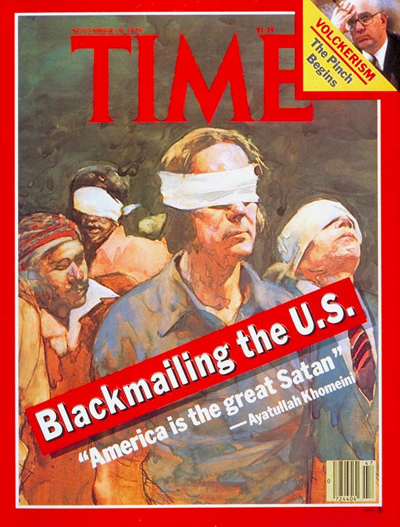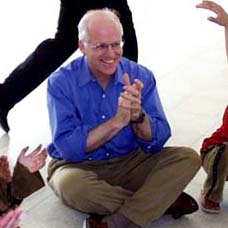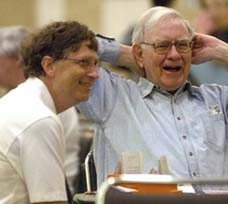2006.08.10: August 10, 2006: Headlines: COS - Iran: Hostages: Easy Reader: Two of the hostages in Iran John Limbert and Michael Metrinko, had served in the Peace Corps in Iran, were Farsi speakers, and were genuine lovers of Iranian culture
Peace Corps Online:
Directory:
Iran:
Peace Corps Iran :
The Peace Corps in Iran:
2006.04.29: April 29, 2006: Headlines: COS - Iran: Diplomacy: Hostage: Powerline Blog: RPCV Michael Metrinko was a hostage in Iran in 1979 :
2006.08.10: August 10, 2006: Headlines: COS - Iran: Hostages: Easy Reader: Two of the hostages in Iran John Limbert and Michael Metrinko, had served in the Peace Corps in Iran, were Farsi speakers, and were genuine lovers of Iranian culture
Two of the hostages in Iran John Limbert and Michael Metrinko, had served in the Peace Corps in Iran, were Farsi speakers, and were genuine lovers of Iranian culture

Metrinko, if anything, was even more in love with Iranian culture. He had hundreds of friends and frequently was out late, eating, drinking, smoking and talking into the wee hours about all things Iranian. As a hostage, he could never get over the irony that a nation that so valued hospitality could so corrupt that tradition by taking hostages. Metrinko did everything in his power to never let them forget that he was not a guest. A verbally sharp, whip-smart man, he chided and cursed his captors and made life as uncomfortable as he could; as a result, he spent the first eight months of his captivity in solitary confinement in a small closet in the basement. He slept on concrete and sometimes was handcuffed for as long as two weeks straight. At Christmas, when a genuine meal complete with special sweet treats was brought to him, he made sure they saw him take it and flush it down a toilet.
Two of the hostages in Iran John Limbert and Michael Metrinko, had served in the Peace Corps in Iran, were Farsi speakers, and were genuine lovers of Iranian culture
Filmmakers examine U.S., militant Islam Second of two parts
by Mark McDermott
The documentary has generated some of the highest ratings ever on the Times Discovery Channel. Perhaps most significantly, several former hostages commended Guests of the Ayatollah. Former hostage Bill Daugherty wrote that he had “no words to express my admiration for your work…it was a privilege to have participated in what will be a significant part of the historical record.”
[Excerpt]
Both the book and the documentary reveal a compelling cast of characters. Two of the state department officials, John Limbert and Michael Metrinko, had served in the Peace Corps in Iran, were Farsi speakers, and were genuine lovers of Iranian culture. Limbert had married an Iranian woman and lectured for several years at Iranian universities. He told Bowden that he couldn’t help but like the students even as they stormed the embassy. In the documentary, he talks about how he was sent out to try to calm the rallying students outside the embassy. “That didn’t go over very well,” Limbert dryly observes. He was immediately taken hostage.
Metrinko, if anything, was even more in love with Iranian culture. He had hundreds of friends and frequently was out late, eating, drinking, smoking and talking into the wee hours about all things Iranian. As a hostage, he could never get over the irony that a nation that so valued hospitality could so corrupt that tradition by taking hostages.
“I was attached to Iran, perhaps too attached,” he says in the documentary. “I liked Iran. I liked Iranians. I was sympathetic to their revolution and it bothered me they could not understand they had the support of many of us in the embassy.”
The students liked to think of the hostages as “guests of the Ayatollah.” Metrinko did everything in his power to never let them forget that he was not a guest. A verbally sharp, whip-smart man, he chided and cursed his captors and made life as uncomfortable as he could; as a result, he spent the first eight months of his captivity in solitary confinement in a small closet in the basement. He slept on concrete and sometimes was handcuffed for as long as two weeks straight. At Christmas, when a genuine meal complete with special sweet treats was brought to him, he made sure they saw him take it and flush it down a toilet.
Aaron Bowden said that Metrinko still rankles at the memories.
When this story was posted in September 2006, this was on the front page of PCOL:





Peace Corps Online The Independent News Forum serving Returned Peace Corps Volunteers
 | Chris Shays Shifts to Favor an Iraq Timetable
In a policy shift, RPCV Congressman Chris Shays, long a staunch advocate of the Bush administration's position in Iraq, is now proposing a timetable for a withdrawal of American troops. How Mr. Shays came to this change of heart is, he says, a matter of a newfound substantive belief that Iraqis need to be prodded into taking greater control of their own destiny under the country’s newly formed government. As Chairman of the House Government Reform subcommittee on national security, he plans to draft a timetable for a phased withdrawal and then push for its adoption. A conscientious objector during the Vietnam War who said that if drafted he would not serve, Chris Shays has made 14 trips to Iraq and was the first Congressman to enter the country after the war - against the wishes of the Department of Defense. |
 | Peace Corps' Screening and Medical Clearance
The purpose of Peace Corps' screening and medical clearance process is to ensure safe accommodation for applicants and minimize undue risk exposure for volunteers to allow PCVS to complete their service without compromising their entry health status. To further these goals, PCOL has obtained a copy of the Peace Corps Screening Guidelines Manual through the Freedom of Information Act (FOIA) and has posted it in the "Peace Corps Library." Applicants and Medical Professionals (especially those who have already served as volunteers) are urged to review the guidelines and leave their comments and suggestions. Then read the story of one RPCV's journey through medical screening and his suggestions for changes to the process. |
 | Gates charity races to spend billions
Warren E. Buffett’s gift of $31 billion to the Bill and Melinda Gates Foundation means that for tax reasons, starting in 2009, the foundation must distribute $3 billion annually, or a little more than twice what it distributed last year.
PCOL Comment: The Foundation says that "preventing the spread of HIV is the most durable long-term solution to the AIDS epidemic, and a top priority for the foundation." Peace Corps Volunteers and Returned Volunteers have been doing just that in AIDS Education for the past 15 years. Why not consider a $100M annual contribution to the Peace Corps to put 2,500 additional volunteers in the field to expand AIDS education worldwide? |
 | The Peace Corps is "fashionable" again
The LA Times says that "the Peace Corps is booming again and "It's hard to know exactly what's behind the resurgence." PCOL Comment: Since the founding of the Peace Corps 45 years ago, Americans have answered Kennedy's call: "Ask not what your country can do for you--ask what you can do for your country. My fellow citizens of the world: ask not what America will do for you, but what together we can do for the freedom of man." Over 182,000 have served. Another 200,000 have applied and been unable to serve because of lack of Congressional funding. The Peace Corps has never gone out of fashion. It's Congress that hasn't been keeping pace. |
 | Changing the Face of Hunger
In his new book, Former Congressman Tony Hall (RPCV Thailand) says humanitarian aid is the most potent weapon the United States can deploy against terrorism. An evangelical Christian, he is a big believer in faith-based organizations in the fight against hunger. Members of Congress have recently recommended that Hall be appointed special envoy to Sudan to focus on ending the genocide in Darfur. |
 | PC will not return to East Timor in 2006
Volunteers serving in East Timor have safely left the country as a result of the recent civil unrest and government instability. Latest: The Peace Corps has informed us that at this time, the Peace Corps has no plans to re-enter the country in 2006. The Peace Corps recently sent a letter offering eligible volunteers the opportunity to reinstate their service in another country. |
 | Chris Dodd considers run for the White House
Senator Chris Dodd plans to spend the next six to eight months raising money and reaching out to Democrats around the country to gauge his viability as a candidate. Just how far Dodd can go depends largely on his ability to reach Democrats looking for an alternative to Hillary Clinton. PCOL Comment: Dodd served as a Volunteer in the Dominican Republic and has been one of the strongest supporters of the Peace Corps in Congress. |
 | Peace Corps stonewalls on FOIA request
The Ashland Daily Tidings reports that Peace Corps has blocked their request for information on the Volkart case. "After the Tidings requested information pertaining to why Volkart was denied the position — on March 2 — the newspaper received a letter from the Peace Corps FOIA officer stating the requested information was protected under an exemption of the act." The Dayton Daily News had similar problems with FOIA requests for their award winning series on Volunteer Safety and Security. |
 | PCOL readership increases 100%
Monthly readership on "Peace Corps Online" has increased in the past twelve months to 350,000 visitors - over eleven thousand every day - a 100% increase since this time last year. Thanks again, RPCVs and Friends of the Peace Corps, for making PCOL your source of information for the Peace Corps community. And thanks for supporting the Peace Corps Library and History of the Peace Corps. Stay tuned, the best is yet to come. |
 | History of the Peace Corps
PCOL is proud to announce that Phase One of the "History of the Peace Corps" is now available online. This installment includes over 5,000 pages of primary source documents from the archives of the Peace Corps including every issue of "Peace Corps News," "Peace Corps Times," "Peace Corps Volunteer," "Action Update," and every annual report of the Peace Corps to Congress since 1961. "Ask Not" is an ongoing project. Read how you can help. |
 | RPCV admits to abuse while in Peace Corps
Timothy Ronald Obert has pleaded guilty to sexually abusing a minor in Costa Rica while serving there as a Peace Corps volunteer. "The Peace Corps has a zero tolerance policy for misconduct that violates the law or standards of conduct established by the Peace Corps," said Peace Corps Director Gaddi H. Vasquez. Could inadequate screening have been partly to blame? Mr. Obert's resume, which he had submitted to the Peace Corps in support of his application to become a Peace Corps Volunteer, showed that he had repeatedly sought and obtained positions working with underprivileged children. Read what RPCVs have to say about this case. |
 | Why blurring the lines puts PCVs in danger
When the National Call to Service legislation was amended to include Peace Corps in December of 2002, this country had not yet invaded Iraq and was not in prolonged military engagement in the Middle East, as it is now. Read the story of how one volunteer spent three years in captivity from 1976 to 1980 as the hostage of a insurrection group in Colombia in Joanne Marie Roll's op-ed on why this legislation may put soldier/PCVs in the same kind of danger. Latest: Read the ongoing dialog on the subject. |
Read the stories and leave your comments.

Some postings on Peace Corps Online are provided to the individual members of this group without permission of the copyright owner for the non-profit purposes of criticism, comment, education, scholarship, and research under the "Fair Use" provisions of U.S. Government copyright laws and they may not be distributed further without permission of the copyright owner. Peace Corps Online does not vouch for the accuracy of the content of the postings, which is the sole responsibility of the copyright holder.
Story Source: Easy Reader
This story has been posted in the following forums: : Headlines; COS - Iran; Hostages
PCOL34022
82























